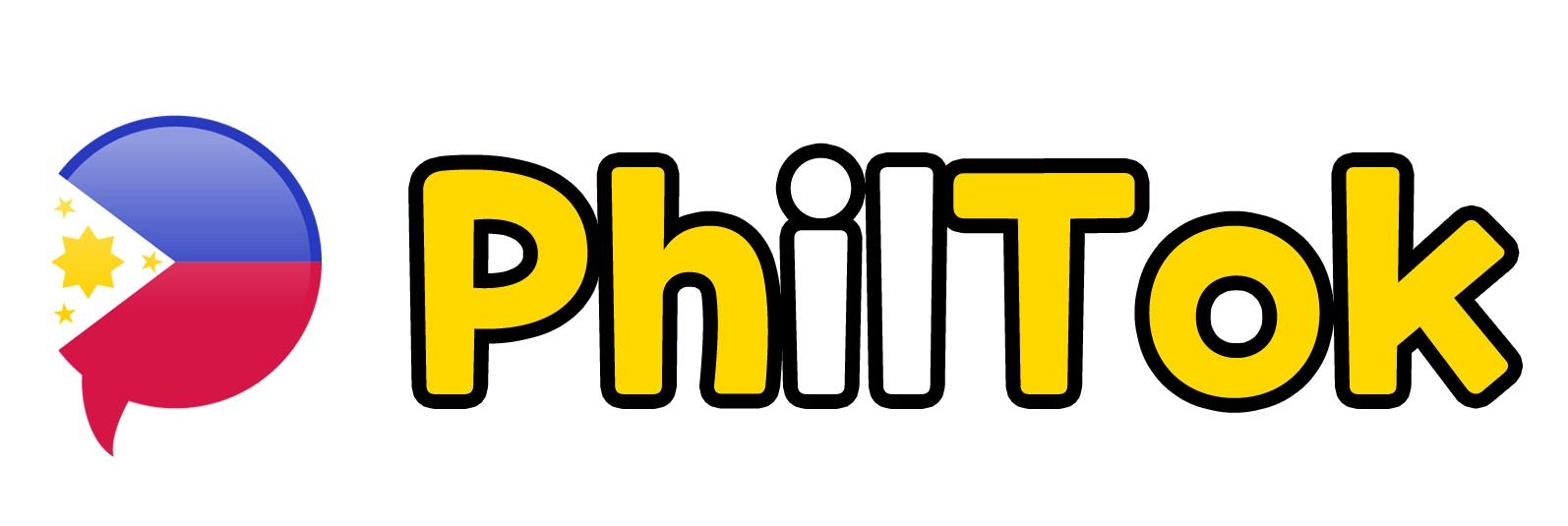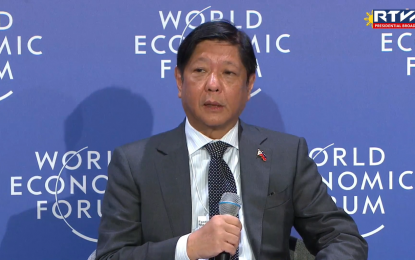[1.19] PBBM은 식량, 영양 안보에 대해 WEF와 협력
컨텐츠 정보
- 21,648 조회
본문
MANILA – "Ferdinand R. Marcos Jr." 회장 수요일에 세계 식량 및 영양 안보를 보장하기 위해 올해 세계경제포럼(WEF) 참가자들과 협력할 수 있다는 개방성을 표명했습니다.
스위스 다보스에서 열린 세계경제포럼(WEF)의 영양 안보를 향한 움직임에 관한 패널 세션에서 "마르코스"는 세계경제포럼 참석자와 기타 이해관계자들이 "식량 안보와 영양 안보를 모두 포괄하는 총체적이고 통합된 계획"을 마련해야 한다고 말했습니다.
"영양의 목적에 대한 공통 패러다임을 통해 우리 모두에게 영양 안보를 향한 첫 번째 큰 도약을 제공한다는 점에서 똑같이 중요한 미래 소비 플랫폼의 핵심 구성 요소인 WEF의 새로운 영양 영역 작업은 칭찬할 만합니다. 그리고 식품의 미래, 영양에 대한 경제적 가치 창출을 목표로 하면서 우리의 노력을 지속하기 위한 개발 원칙 및 지표”라고 Marcos는 말했습니다.
"친구 및 파트너 여러분, 저는 오늘 이 토론에서 생산적이고 통찰력 있는 결과를 기대합니다. 저는 우리가 영양 안보라는 공통 목표를 향해 나아가도록 우리 모두를 자극할 영향력이 크고 실행 가능하며 집단적인 아이디어를 불러일으킬 수 있을 것이라고 확신합니다. 건강과 음식, 특히 그 음식의 질에서"라고 덧붙였다.
"마르코스"는 2040년까지 "번영하고 회복력이 있으며 안전한 필리핀"이라는 비전을 바탕으로 식량 안보가 행정부의 국가 어젠다의 최전선에 있음을 강조하면서 발언을 했습니다.
그는 필리핀 정부의 가장 중요한 목표는 "아무도 배고프지 않고, 필리핀인들이 장수하고 건강하게 살며, 신뢰와 안보에 기반한 환경이 제공되고, 혁신적이고 똑똑할 수 있는 포용적인 사회를 구축하는 것"이라고 말했다. 그리고 오늘의 문제에 반응합니다."
Marcos는 "이러한 모든 높은 목표를 강조하는 것은 모든 사람에게 양질의 충분한 영양을 제공하는 것입니다."라고 말했습니다.
Marcos는 식량 안보에 대한 4가지 측면에서 필리핀을 113개국 중 64위로 평가한 2021 세계 식량 안보 지수를 인용하면서 지난 몇 년 동안 상당한 성과를 거두었음에도 불구하고 지속 가능한 개발 목표 2를 달성하기 위해 해야 할 일이 많이 남아 있다고 강조했습니다. 기아 제로.
국가가 영양 안보를 달성할 수 있도록 돕기 위해 "마르코스"는 농어업 생산성 향상, 물류 시스템 개선 및 사람들의 라이프스타일 변화를 포함하여 몇 가지 제안을 했습니다.
"Marcos"는 또한 식량 생산을 늘리기 위해 기후 탄력적 기술의 사용과 도시 및 수직 농업의 촉진을 권장했습니다.
"우리는 더 큰 규모의 팜투테이블처럼 우리 국민에게 영양가 있는 음식을 제공하는 시설, 물류 및 시스템에 투자하고 식품 품질을 향상시키는 규제를 시행할 수 있는 기관의 역량을 강화해야 합니다."라고 그는 말했습니다.
"우리는 또한 식품과 내용물의 영양가를 높이고 유통기한을 연장하는 기술을 개발하기 위해 협력해야 합니다."라고 Marcos는 덧붙였습니다.
"Marcos"는 정부가 또한 영양가 있는 생활 방식을 장려해야 한다고 말했습니다. 다양한 연령과 소득 수준에 걸쳐 활동적이고 건강을 추구하는 행동을 장려합니다. 녹색 및 순환 경제 개념을 기반으로 생태계를 조성합니다.
그는 다가오는 세계 식량 및 에너지 부족 속에서 식량을 "이용 가능하고 저렴하며 접근 가능"하게 만드는 핵심 개입을 추구해야 할 필요성을 강조했습니다.
WEF의 영양 안보를 향한 패널 세션은 증가하는 글로벌 영양 위기에 대한 개요를 제공하고, 긍정적인 영양 및 건강 결과를 유도하는 데 필요한 변화의 핵심 원칙을 식별하고, 가용성, 접근성 및 영양가 있고 건강한 식품 선택을 대규모로 채택합니다.
이 행사는 또한 개인과 사회의 탄력성을 높이는 데 있어 영양 안보의 중요한 역할에 대한 인식을 제고하고자 합니다. (PNA)
This is the Original Article from PNA NEWS
[1.19]PBBM eyes collaboration with WEF on food, nutrition security
MANILA – President "Ferdinand R. Marcos Jr." on Wednesday expressed openness to working with the participants of this year's World Economic Forum (WEF) to ensure global food and nutrition security.
During the Panel Session on Moving Towards Nutrition Security at WEF in Davos, Switzerland, "Marcos" said WEF attendees and other stakeholders should come up with a "holistic and integrated plan covering both food security and nutrition security."
"The work of the WEF's new frontiers of nutrition, a vital component of the equally-vital future of consumption platform is commendable in this regard, in providing us all with a first big leap towards nutrition security through a common paradigm on the purpose of nutrition and the future of food and developing principles and indicators to sustain our efforts while aiming to create economic value for nutrition," Marcos said.
"Friends and partners, I look forward to productive and insightful outcomes from these discussions today. I'm confident we will be able to arouse high impact, actionable and collective ideas to stir us all forward on our common goal of nutrition security not only in health and food but especially in the quality of that food," he added.
"Marcos," made the remark, as he stressed that food security remains at the forefront of his administration's national agenda, anchored on the vision for a "prosperous, resilient and secure Philippines" by 2040.
He said the Philippine government's overarching goals are to build an inclusive society "where no one is hungry, where Filipinos live long and healthy lives, where they are provided with an environment built upon trust and security, and where they can be innovative and remains smart and responsive to the problems of the day."
"Underscoring all these lofty goals is ensuring that each and everyone is provided with quality and ample nutrition," Marcos said.
Citing a 2021 Global Food Security Index which ranked the Philippines at 64th out of 113 nations in terms of four dimensions on food security, Marcos emphasized that despite significant gains in the past few years, much remains to be done to attain Sustainable Development Goal 2 on Zero Hunger.
In a bid to help nations attain nutrition security, "Marcos" made several suggestions, which include boosting agricultural and fishery productivity, improving logistics systems and changing people's lifestyles.
"Marcos" also recommended the use of climate-resilient technologies and the promotion of urban and vertical farming to increase food production.
"We must invest in facilities, logistics and systems that bring nutritious food to our people, much like a grander scale of farm-to-table and increase the capacity of our institutions to enforce regulations that enhance food quality," he said.
"We must also cooperate to develop technologies that increase the nutritional value of our food and content and prolong their shelf life," Marcos added.
"Marcos" said governments must also incentivize a nutritious lifestyle; promote active and health-seeking behaviors across different ages and income levels; and create an ecosystem based on the concept of a green and circular economy.
This, as he stressed the need to pursue key interventions that are those geared toward making food "available, affordable and accessible" amid the looming global food and energy shortage.
The Panel Session on Moving Towards Nutrition Security at WEF aims to provide an overview of the growing global nutrition crisis, identify the key tenets of change needed towards driving positive nutrition and health outcomes, and share strategies and solutions that can increase the availability, access and adoption of nutritious and healthy food choices at scale.
The event also seeks to raise awareness in the critical role of nutrition security in increasing individual and society resilience. (PNA)
관련자료
-
이전
-
다음


